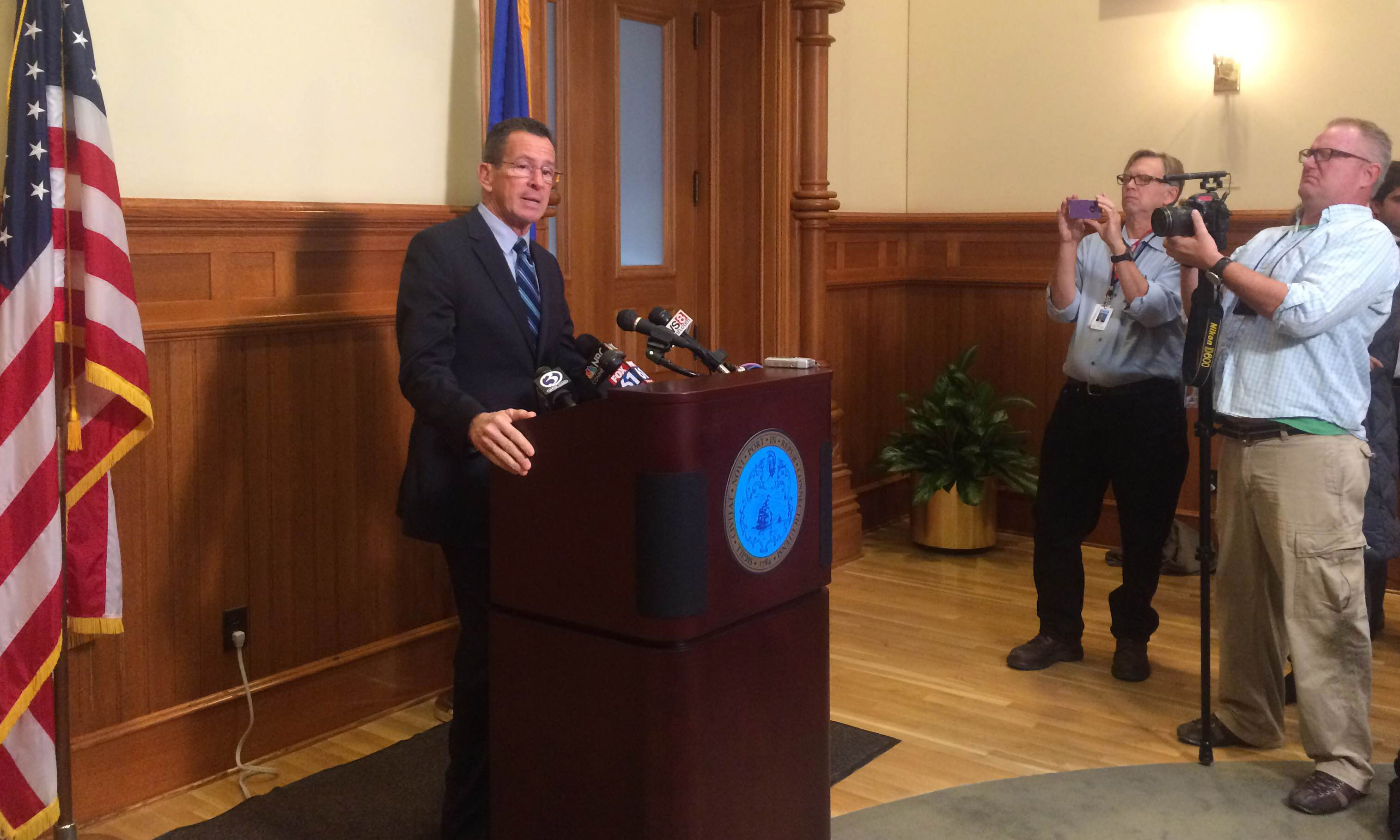
In an effort to protect victims of domestic violence, Gov. Dannel Malloy introduced legislation last week that would require anyone under a temporary restraining order to surrender their firearms and ammunition within 24 hours.
For up to 14 days after an individual is given a temporary restraining order, a judge must hold a hearing to determine whether the restraining order should be lifted or made permanent. But under current state law, individuals are permitted to keep any firearms they own during this time. Malloy’s proposed bill, titled “An Act Protecting the Victims of Domestic Violence,” aims to reduce the potential danger of that two-week waiting period by removing firearms earlier. The 24-hour countdown to hand over one’s firearms begins the moment an individual is notified of the temporary restraining order against him. Gun rights organizations across the state have raised objections, but to Malloy, the bill simply codifies “common sense.”
“We should be able to work across party lines on these issues,” Malloy said. “We should be able to agree that a person with a temporary restraining order should not have a deadly weapon. We are either for protecting victims of domestic violence, or against it.”
But prominent voices have expressed opposition to the bill. Connecticut Citizens Defense League President Scott Wilson voiced two primary concerns with the bill. Constitutionally, Wilson said, the bill’s provision for confiscating firearms prior to a hearing would violate citizens’ entitlement to due process of law. Furthermore, he said, few temporary restraining orders ever become permanent, meaning the original claims prompting those annulled orders lack sufficient evidence.
Wilson also disputed how effective the proposed legislation would be. Despite Malloy’s positive intentions, Wilson questioned whether the measures would ultimately save lives.
“I think if somebody wants to get a gun to kill someone [with it] they will,” he said. “There are a lot of ways to kill people.”
According to Malloy and his advocates, however, research demonstrates the bill’s lifesaving potential. Statistics show that victims of domestic violence are five times more likely to be killed when the perpetrator has access to a gun. Additionally, firearms are responsible for 39 percent of the roughly 14 domestic homicides committed in Connecticut each year.
But David Kopel, a professor at the University of Denver Sturm College of Law, still questioned the bill’s constitutionality.
“The governor’s bill would mandate the confiscation of arms from a person who has never had any notice or opportunity to be heard,” Kopel said.
He proposed an approach that is more in line with the due process clause of the Constitution. He also suggested measures to provide the courts with more resources and to enable judges to make prompt decisions after hearing both sides of the situation.
But Malloy’s effort resonated with Connecticut groups fighting against domestic violence. Connecticut Coalition Against Domestic Violence CEO Karen Jarmoc defended the constitutionality of the bill by arguing that similar laws have been signed into legislation by 20 other states across the country.
“We appreciate that [Malloy] has made this a priority,” Jarmoc said. “It’s about protecting victims at what we know a very dangerous time.”
Jarmoc said the CCADV has conducted evidence-based research into firearm-related domestic violence homicides. She also noted that of the eight domestic violence homicides that occurred in Connecticut last year, six of them were commenced with a firearm.
Approximately 16 percent of Connecticut households possess at least one gun.







